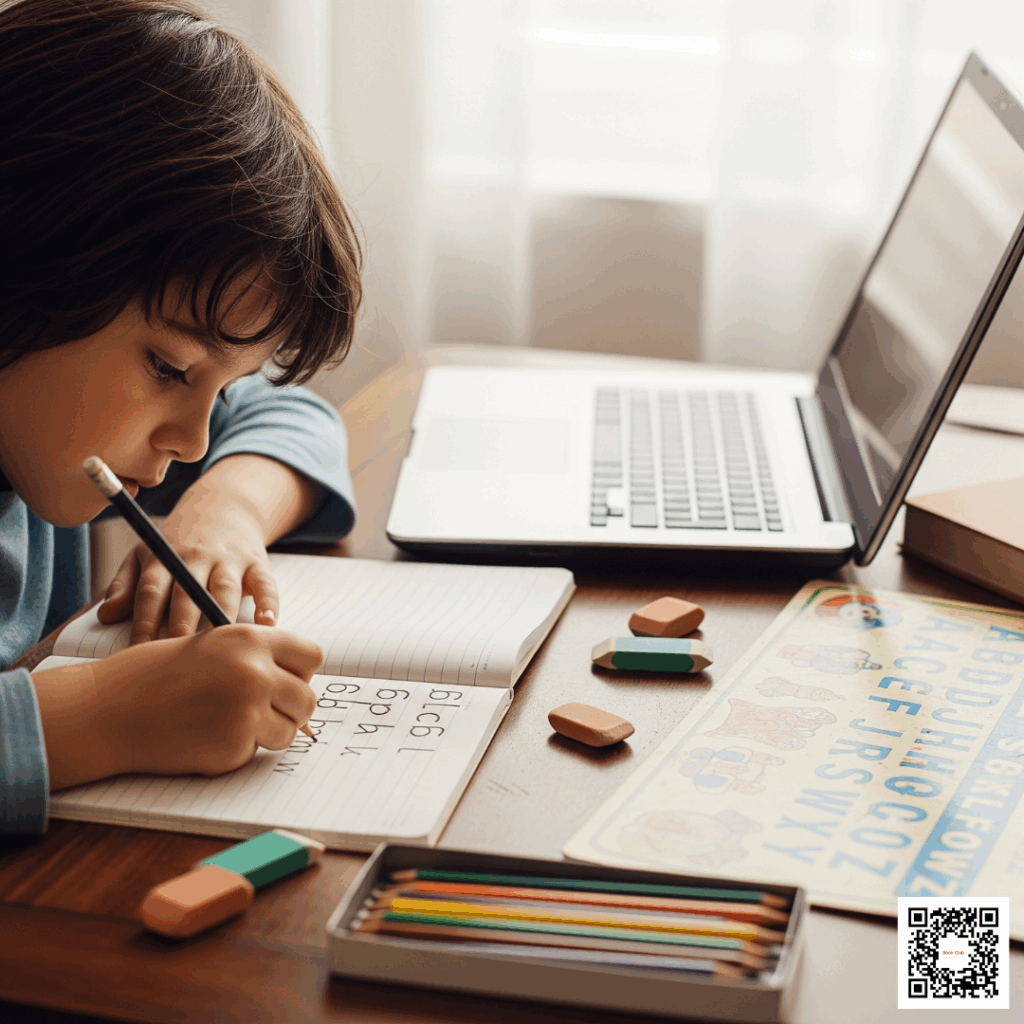Here’s a fun fact hot off the press—literally within the last seven days. Researchers published a study in the Journal of Experimental Child Psychology comparing how children learn letters and words through handwriting versus typing. And guess what? The kids who practiced handwriting came out on top. Better accuracy. Deeper learning. More engagement.
Now, this isn’t just some nostalgia-fueled ode to lined paper and Number 2 pencils. It’s new, peer-reviewed, published research. Science with a spine. And for anyone who grew up practicing cursive loops on dusty classroom chalkboards—or even doodling names in the margins of The Giver—this is more than just a curious footnote. It’s a reminder.
The study shows that handwriting strengthens early literacy skills in ways that typing simply doesn’t match. Not that typing is bad—it’s just not enough. Typing helps with speed. But handwriting, with its deliberate strokes and muscular memory, helps kids build a mental map of letters and words. A swipe on the screen can’t do that.
Think about it this way: when a child writes the letter “A,” they’re not just seeing it—they’re feeling it. The start at the top, the sharp angle, the crossbar. It’s a full-body memory, not just a visual cue. Writing teaches the shape of language through motion and repetition. Typing, on the other hand, teaches… well, where to find “A” on a QWERTY keyboard.
This isn’t just about kids, either. The same research connects to how we read, remember, and reflect. In an era where we’re told faster is better—where even book lovers skim through To Kill a Mockingbird on an app between texts and TikToks—this discovery feels like a gentle nudge to slow down and let the words breathe.
And this fun trivia nugget comes at a curious cultural moment. The New Yorker just ran a piece titled The End of the English Paper, exploring whether AI is making traditional writing obsolete. Meanwhile, the New York Post warns that AI shortcuts are making kids lazy, and Vox recently posed the question: Is the decline of reading poisoning our politics?
Big questions. Heavy headlines. And yet, here’s this soft-spoken little study about handwriting and children’s brains, slipping quietly through the noise like a note passed in class. It suggests that the act of writing—real writing, the ink-on-paper kind—still matters.
In a way, this is a story about memory. Not just in the cognitive sense, but in the emotional sense, too. Ask someone how they learned to write their name, and you’ll get a story. Maybe it was blocky letters on the fridge in magnetic colors. Or maybe it was repeated loops in a spelling notebook until muscle met meaning.
Try asking that same person how they learned to type their name. Silence, maybe. Or just a shrug.
Now, does this mean we should toss our keyboards out the window and start churning butter by hand again? Of course not. But it does mean we might want to reconsider the balance. If you’ve got kids learning to read and write, this is your nudge to break out the notebooks again. Even for adults, handwriting can sharpen focus, improve retention, and spark creativity. Writing things down matters.
This story isn’t just about literacy. It’s about connection—to language, to memory, and to the physical world. Writing by hand slows us down just enough to feel what we’re saying. It roots us in the sentence. It makes us part of the story.
So go ahead—doodle in the margins of your grocery list. Jot down that favorite quote. Write a note to someone you love instead of texting. Because even in a world of infinite pixels, a little ink still goes a long way.
That’s your fun trivia for the week: handwriting helps us learn better than typing. Who knew? Well, now you do.
And if you’re ever stuck wondering what to write next, maybe start by writing it by hand.
You might be surprised what your pen remembers.
Help Us Spread the Word
If this trivia made you smile or taught you something new, why not pass it on? Readers love curious facts—and writers do too. Here’s how you can help:
- Share the post on Facebook or in a book club group
- Forward it to someone who enjoys little-known stories
- Talk about it at your next book club meeting
Invite others to join us here:
www.publicationconsultants.com/newsletter
We’re growing a book-loving community one great story at a time. Your share might be why someone falls back in love with reading—or dares to start writing.


